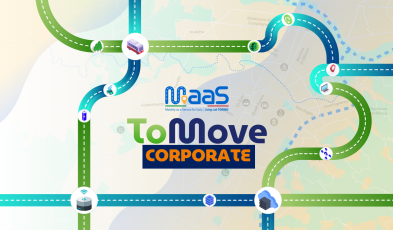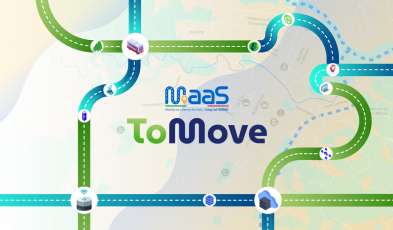MaaS4Italy
In the context of the development of MaaS in Italy, called MaaS4Italy, the City of Turin has been selected as one of the six regional capitals for the local pilot experiment; similarly, the Piedmont Region was chosen as one of the seven selected among regions and autonomous provinces.
In collaboration with the publicly-owned company "5T," Turin has launched the pilot by identifying two use cases: MaaS for private citizens and MaaS for companies or organizations. The MaaS Operators who will provide the services were selected through a public procedure.
The project is funded with resources from the Complementary Fund to the PNRR as part of the national program promoted in collaboration between the Department for Digital Transformation (DTD) of the Prime Minister’s Office and the Ministry of Infrastructure and Transport (MIT). This project is part of the broader "Digital Italy 2026" strategy.
Politecnico di Torino and MaaS Corporate
The Politecnico di Torino is actively involved in the MaaS4Italy project through the pilot of Corporate MaaS, the MaaS dedicated to the corporate and academic sectors, promoted by the City of Turin. The Politecnico is the first and only university participating in this experiment, along with three other companies in the metropolitan area with over 100 employees: Banca Patrimoni Sella & C., CNH Industrial Italia, and MICROTECNICA. The university is testing the available platforms for MaaS Corporate (Urbi, Wetaxi, and MoonyGo) with the voluntary participation of its employees.
Purpose and Benefits of the Initiative
The MaaS pilot aims to improve access to transport and complementary services through the use of digital platforms, offering users an increasingly agile, accessible, and modern mobility experience. Additionally, it seeks to meet diverse mobility needs, including private cars, and to promote the use of more sustainable means, thereby reducing dependence on individual motorized mobility and minimizing the negative impacts on road traffic.
In its Corporate version, the project provides access to aggregated data on user movements, useful for better understanding the mobility needs of staff. This information allows the University to more efficiently monitor home-to-campus commuting, improve campus accessibility, plan and optimize resources, and promote the adoption of more sustainable transport solutions, helping to reduce the overall environmental impact.
More generally, this important initiative aims for a city with smoother and safer daily mobility, reduced spatial and environmental impact from vehicle traffic, and more favorable conditions for interactions between people and their effective use of travel time.


